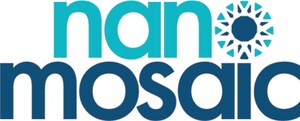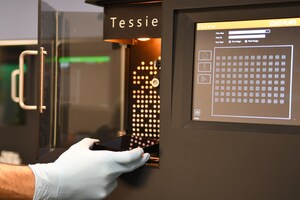NanoMosaic Nanoneedle Technology Identifies Serum Biomarker of Delirium After Cardiac Surgery
BOSTON, Sept. 20, 2022 /PRNewswire/ -- With NanoMosaic's nanoneedle technology, researchers from Massachusetts General Hospital and Harvard Medical School detected Tau and phosphor-Tau proteins in serum samples from patients under major cardiac surgery with cardiopulmonary bypass. Elevation of Tau and phosphor-Tau proteins were observed before and after the surgery, and Tau protein is identified as a potential serum biomarker of delirium after cardiac surgery. The study has been published in the British Journal of Anaesthesia.
Postoperative delirium can have both short-term and long-term effects on cognitive function and attribute to $32.9 billion healthcare costs in the United Sates every year. Evaluation of delirium is based solely on a cognitive test today: no serum or plasma biomarkers have been identified and validated for clinical applications. In an earlier study on plasma published in Annals of Surgery this year, pre-operative phospho-Tau217 in plasma were detected using nanoneedle technology and identified as a potential predictive biomarker for postoperative delirium with high sensitivity and specificity. The two studies, both using nanoneedle technology on the Tessie™ platform, paved the way for clinical applications of Tau and phosphor-Tau biomarkers for post-operative delirium in plasma and serum.
Blood-based tests have clear advantage in clinical settings over positron emission tomography (PET) scan or cerebral spinal fluid analysis, often used as highly specific and accurate detection for Alzheimer's disease and related dementias. Assay sensitivity and precision are among the major hurdles in the development and validation of plasma and serum biomarkers.
"The Tessie™ platform improves the sensitivity and precision of immunoassay by detecting and counting single molecules using arrays of nanoneedles fabricated on a chip", said Dr. Qimin Quan, Co-Founder and Chief Scientific Officer of NanoMosaic. "The ability to integrate and read high density nanoneedles at an ultra-small footprint both minimizes the sample volume and increases the detection precision, enabling researchers to see low-abundance proteins in the precious samples," Quan concluded.
"The wide dynamic range of the Tessie™ with its streamlined workflow, allows the clinician to work directly from diluted plasma or serum, with no further sample preparation. This simplicity of this workflow and rapid turn around time will usher in the wave of advanced protein diagnostics", stated John Boyce, President, CEO, and Co-Founder of NanoMosaic, as well as Co-Founder of Tiger Gene, L.L.C. "NanoMosaic has implemented the tools and infrastructure to transition from the research bench to the clinic," Boyce concluded.
NanoMosaic, a Boston-based biotechnology company, is the only commercial entity to develop and leverage the power of nanoneedles, MosaicNeedles™, for protein detection and quantification to develop best-in-class assays for biomarker discovery and validation. The NanoMosaic platform, Tessie™, alleviates the bottlenecks in proteomics analysis and provides an end-to-end solution that enables first of its kind protein interrogation and multi-omics analysis within a single chip on one run. The proprietary technology enables rapid, end user customization for assay development for proteomic and/or nucleic acid content. The NanoMosaic platform allows researchers to push the frontiers in biomarker discovery and diagnostics.
Contact:
Audrey Warner,
[email protected]
SOURCE NanoMosaic

WANT YOUR COMPANY'S NEWS FEATURED ON PRNEWSWIRE.COM?
Newsrooms &
Influencers
Digital Media
Outlets
Journalists
Opted In






Share this article